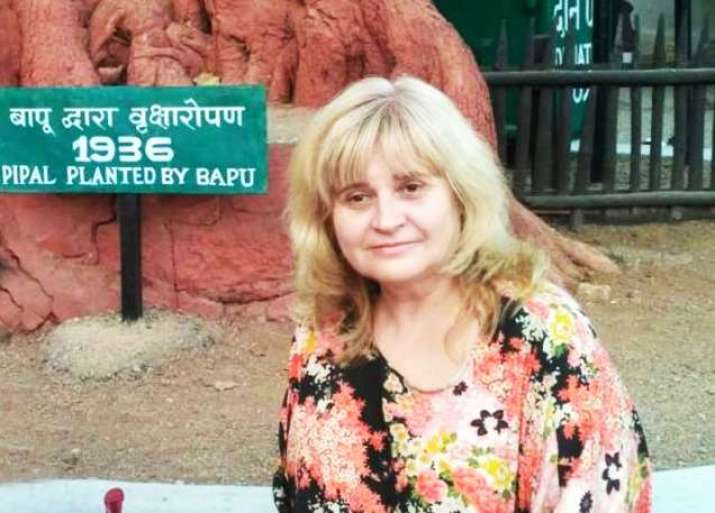
Nowadays, we are witnessing revival movements bringing the teachings of the Buddha back to India, the motherland of Buddhism. The seeds of the Dharma are being planted again in the soil from which it was born.
Buddhistdoor Global had the privilege of discussing this revival with a Bulgarian scholar who has dedicated her life to exploring the rich cultures of India. Milena Bratoeva, professor of ancient Indian (Sanskrit) literature and culture as well as of contemporary Hindi literature, combines her intensive teaching program with the responsibility of being head of the Classical East Department at Sofia University “St. Kliment Ohridski,” Bulgaria.
Prof. Bratoeva spent a year in India delivering series of lectures at numerous prestigious centers of academic study. She was in New Delhi from 29 August 2017 to 15 August 2018 as a fellow of the Senior Research Fellowship Scheme of the Indian Council for Cultural Relations (ICCR), under India’s Ministry of External Affairs. She was associated with the School of Sanskrit and Indic Studies at Jawaharlal Nehru University,one of the leading universities in the world.
The main purpose of her stay in India was to work on her research project, dedicated to the classical Upanishads. While there she started writing a monograph titled Samvada: Pragmatics of the Dialogue in the Upanishads, which is due to be published in Bulgaria by the end of the year.
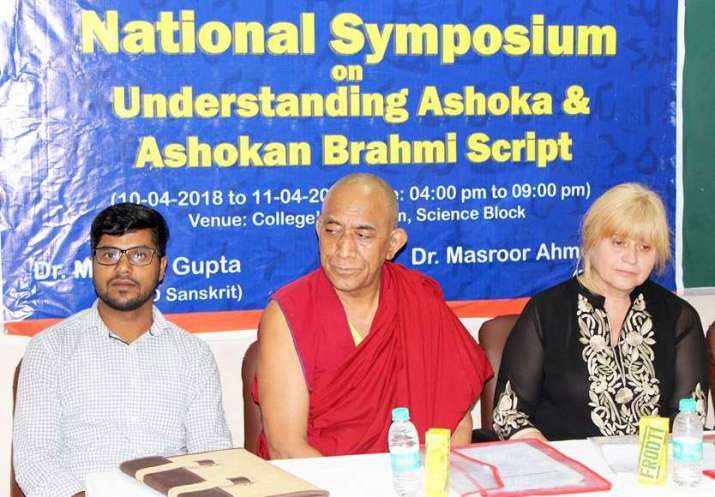
Prof. Bratoeva took part in numerous conferences and workshops on Sanskrit studies and contemporary Hindi literature, and delivered public lectures at several Indian universities and academic institutions, including in New Delhi at Shri Guru Nanak Dev Khalsa College at Delhi University (DU); Hansraj College, DU; Indraprastha College for Women, DU; Bharati College, DU; Bharatiya Vidya Bhavan, Delhi Kendra; and Shri Lal Bahadur Shastri Rashtriya Sanskrit Vidyapeetha. In Pune, she spoke at Savitribhayi Phule Pune University, Hindi Department; in Wardha at Mahatma Gandhi International Hindi University; in Thiruvanthapuram at the Governmental College for Women, Department of Hindi); in Kozhikode at the University of Calicut, Department of Hindi; and in Vishakhapatnam at St. Joseph’s College for Women.
She also participated in a two-day national symposium on Understanding Ashoka & Ashokan Brahmi Script (10–11 April 2018), organized by the Department of Sanskrit at Zakir Husain Delhi College, speaking as a chief guest on Ashoka’s view on global peace-building.
Buddhistdoor Global: How would you describe your teaching experience in India?
Prof. Milena Bratoeva: The year I spent in India was extremely valuable and useful for me from a professional viewpoint. But the most exciting aspect for me was the opportunity to experience and to know real life in India; to meet Indians of different social and cultural backgrounds and to learn more about their ways of thinking and about their lifestyles.
BDG: What kind of Buddhist values did you witness in India?
PMB: It’s not easy to answer such a question, but I was lucky to meet some people during my stay in India who are extremely compassionate and responsive. Maybe this is a reflection of the Buddhist idea of karuna?*
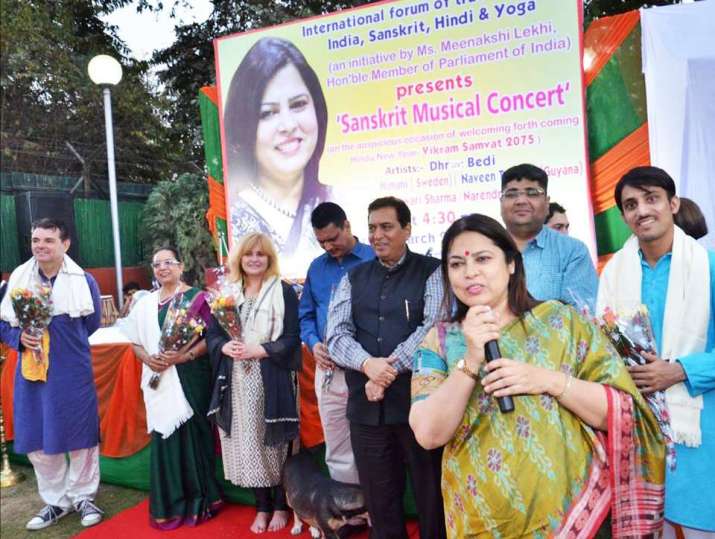
Image courtesy of Milena Bratoeva
BDG: What is your impression of the development of Buddhism in modern India?
PMB: It seems to me that there has been a kind of revival of Buddhism in India in recent years. During my stay in India I visited Patna, Rajghir, and Bodh Gaya, and was impressed by the huge number of Indians, predominantly young people, attending the holy places of Buddhism and meditating in Bodh Gaya. To my knowledge, there has also been a recent increase in the number of Dalit** people converting to Buddhism. According to Indian media, every year thousands of lower-caste Hindus convert to Buddhism in different regions across India.
It is also worth noting the growing activity of the International Network of Engaged Buddhists (INEB) in India nowadays.
BDG: How do you explain the increasing number of Dalit people converting to Buddhism?
PMB: As is well known, the revival of Buddhism in contemporary India was initiated by Dr. Bhimrao Ramji Ambedkar, the architect of the Indian constitution. Dr. Ambedkar was the founder of Navayana Buddhism (“Buddhism of the new vehicle”) and one of the greatest Dalit leaders, who converted to Buddhism with thousands of followers in October 1956 in Nagpur. More than six decades after this remarkable event, millions of Dalits have followed the inspiring example of their leader. Oppressed communities in India are attracted mostly by Buddhism’s rejection of the Hindu caste system and of caste-based inequality in society. The Dalit people are predominantly adherents of the Ambedkarite Buddhism. Conversion to Buddhism for them is a tool of social protest and even an effective political weapon in their struggle for human rights.
BDG: Which Buddhist message inspires you the most?
PMB: Oh, there are so many that I am wondering which to choose. In my view, there hasn’t been another thinker in the history of the world who knows the human psyche and emotions better than the Buddha—the way we human beings experience the world and life, and how difficult it is for us to cope with our negative emotions, cravings, anger, and so on. Two of my favorite thoughts ascribed to the Buddha are: “If you truly loved yourself, you could never hurt another;” and, “You will not be punished for your anger; you will be punished by your anger.”
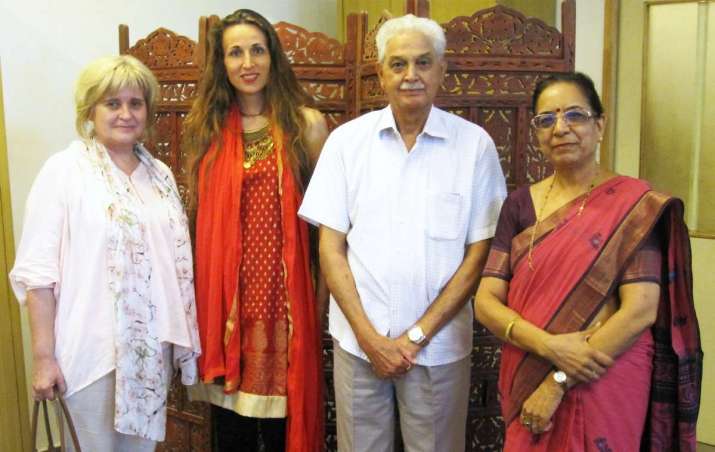
Bharatiya Vidya Bhavan, Delhi Kendra. Image courtesy of the author
* Compassion, from Sanskrit and Pali.
** (Skt. “broken”), sometimes known as untouchables or backward castes, dalits were traditionally excluded from the four-fold class system of Hindu society.


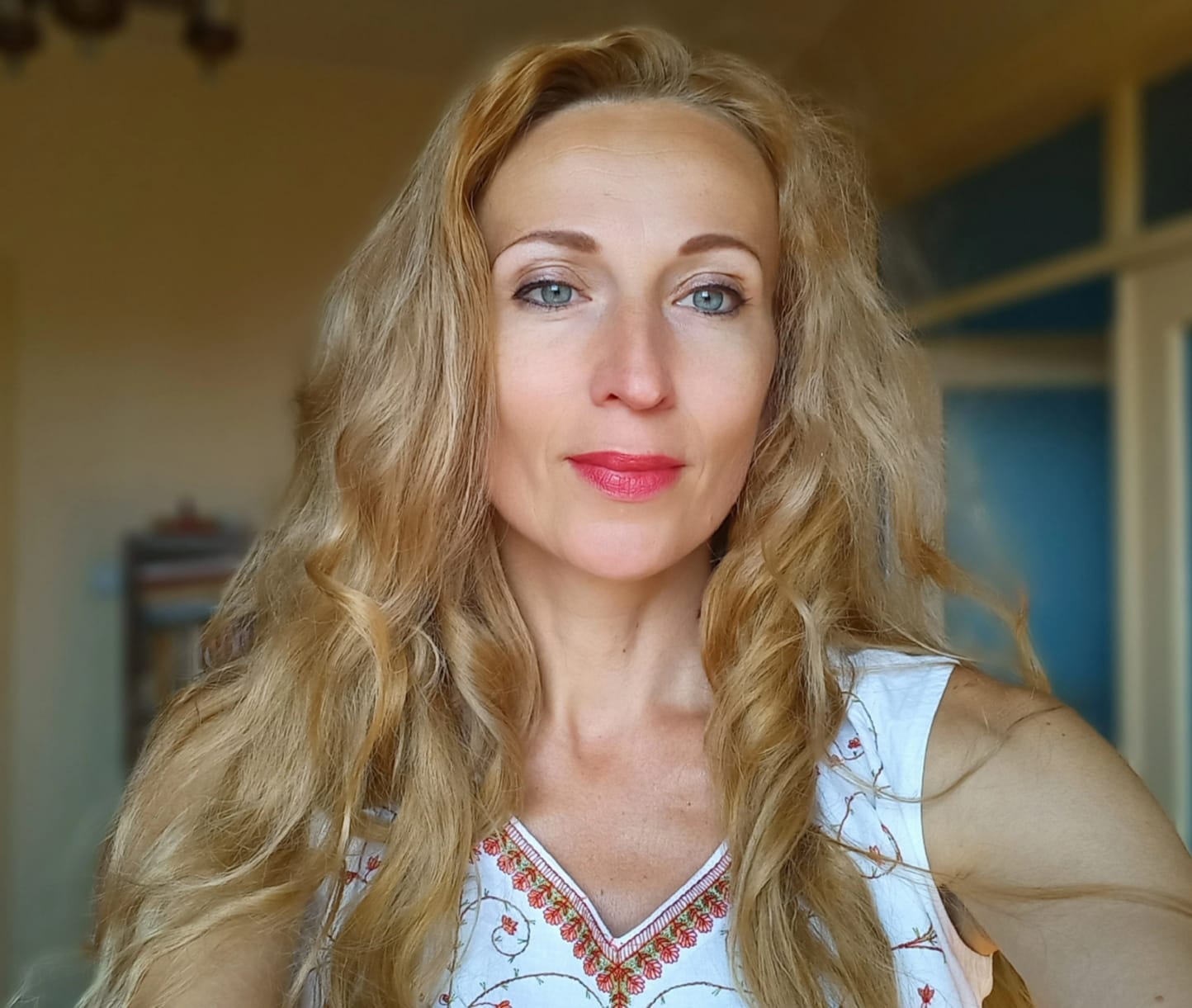



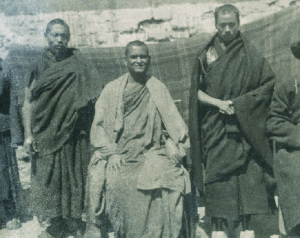





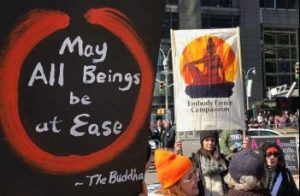
Need more concentration as deep study on the path of dhamma